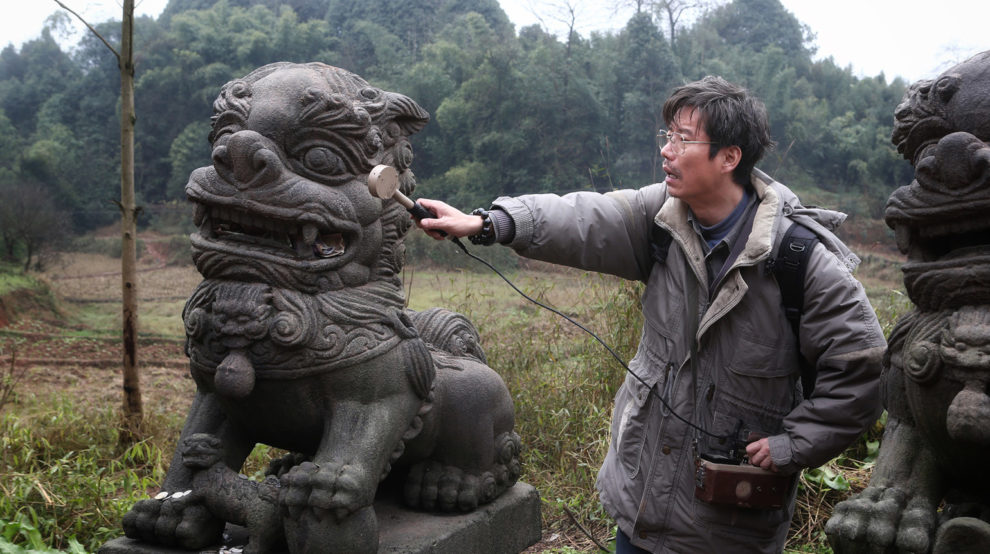For his debut feature, Beijing Film Academy alumni Kong Dashan, chose to move into mockumentary directions, in a film that loans its title from the Chinese literature classic, and its theme from the iconic Space Exploration Magazine, a periodical that was published in China during the 80s and 90s and focused on arousing the interest of the then young generation to explore space and the scientific world.
Journey to the West screened at International Film Festival Rotterdam

In that setting, and through flashbacks in VHS quality that introduce us to the past of the magazine's editor-chief, we get acquainted to the protagonist of the movie Tang Zhijun, who continues his search for UFOs and extraterrestrial life, despite the fact that he is broke, both financially and mentally. His relationship with his wife is also rather intense, since she is really fed up with him, but also does not seem able to abandon him despite her constant nagging, even when he decides to investigate the collective sighting of an unidentified flying object in a village called Burning Nest, where a stone ball disappeared from the mouth of a stone lion. Even more, they find themselves accompanied by a homeless drunk and an insomniac, in a rather absurd parallel to the original “Journey to the West”. After dealing with a number of crooks who still manage to take money from him, despite his wife's occasionally violent protests, he meets Sun Yitong, a young man who claims he has received instructions from aliens on how to retrieve the stone ball, and who writes poems on the side.
The overall approach Kong implements is that of a fable, with the road trip aspect being filled with episodes that can only be perceived as funny, as in the case of the alien in the fridge, or the fact that the drunkard keeps ending up sleeping in the most absurd places. Furthermore, the interactions with his wife are also hilarious on time, with her hysteric ways and his laconic resolve clashing in the most amusing way.
At the same time however, the whole demeanor of Tang is anything but funny, as he appears as a man truly broken, whose obsession (to the point of addiction) has led him to a downward spiral no one seems able to save him from. As he moves his sad figure around, one can only feel sorry for him, in an approach that could be perceived as a critique towards the plethora of people who are also obsessed with any similar notions.
On the other hand, Kong does not seem to want to let his protagonist be completely destroyed, with the fact that he still finds followers, but even more so, through his interactions with Sun, that result in the suspicion that the protagonist may not be actually wrong, moving towards this path. These “mild” sci-fi elements actually work quite well for the narrative, also giving a rather appealing end to the story.
The same applies to Hu Shuzhen's editing, with the various different types of footage being connected in very fashion, and his frequent cuts giving a sense of speed that fits the episodic approach of the narrative. Matthias Delvaux, who was also in “The Cloud in Her Room” presents some very appealing images on occasion, through his sharp contrasts, that seem to even dictate, on occasion, the absurdity that characterizes the whole production.
















